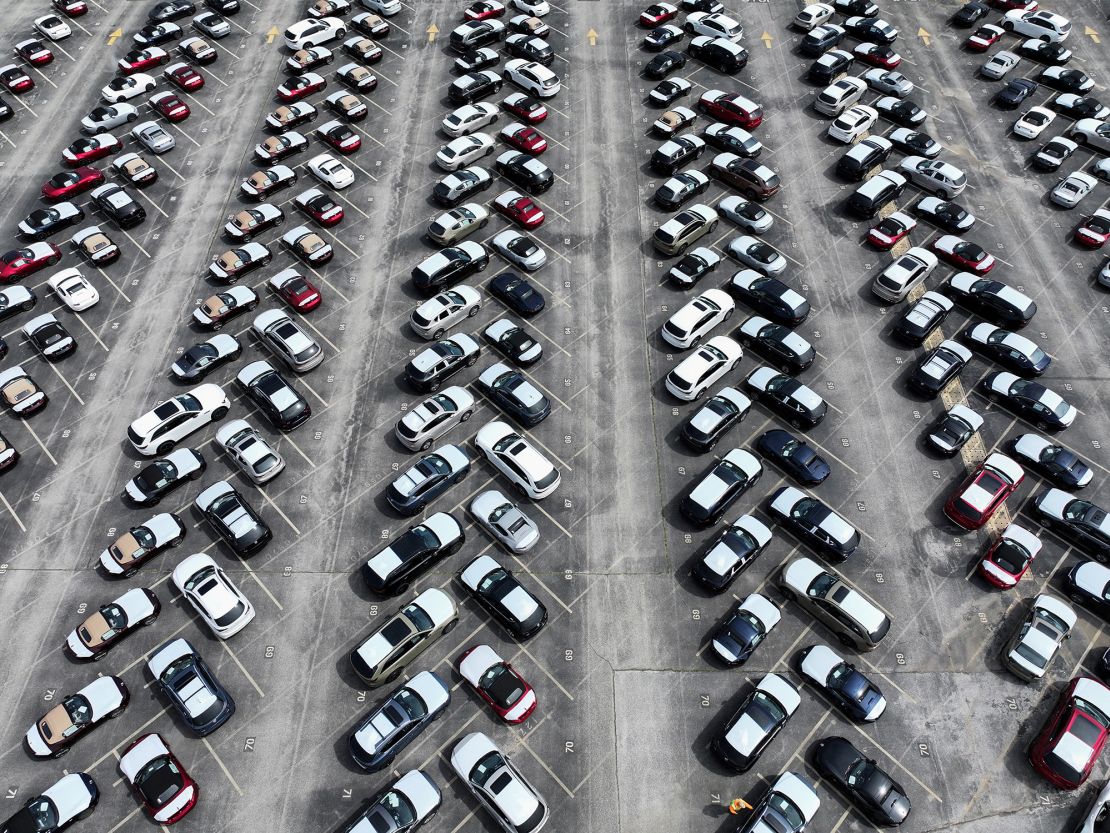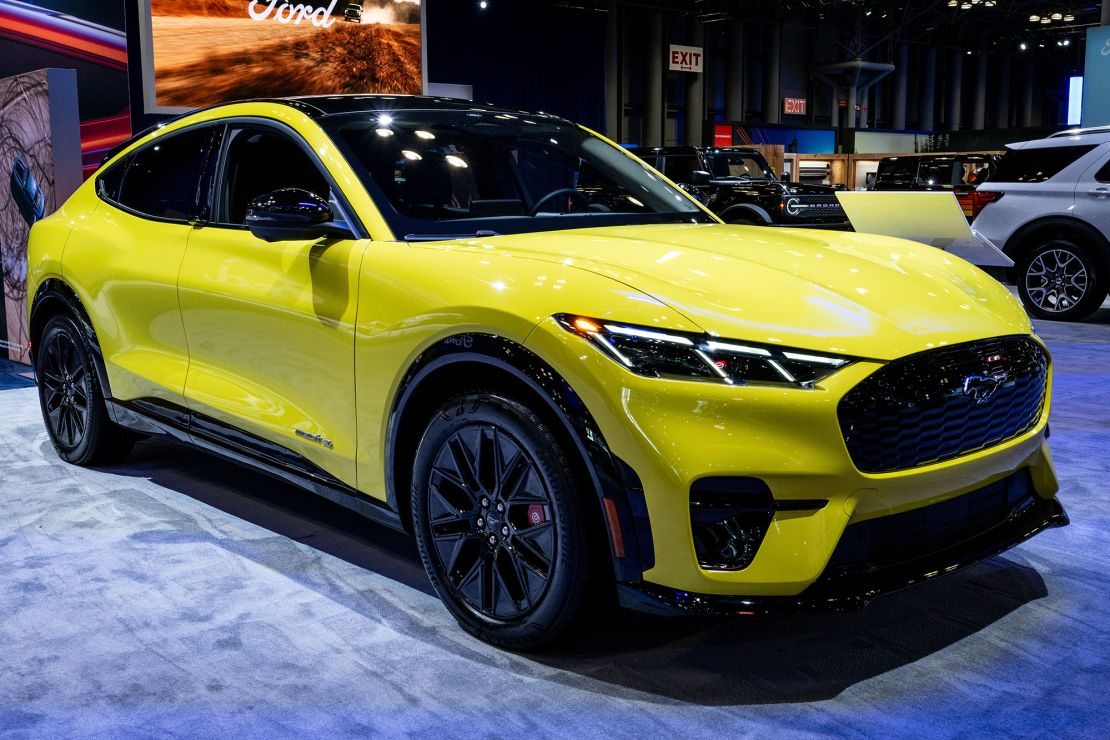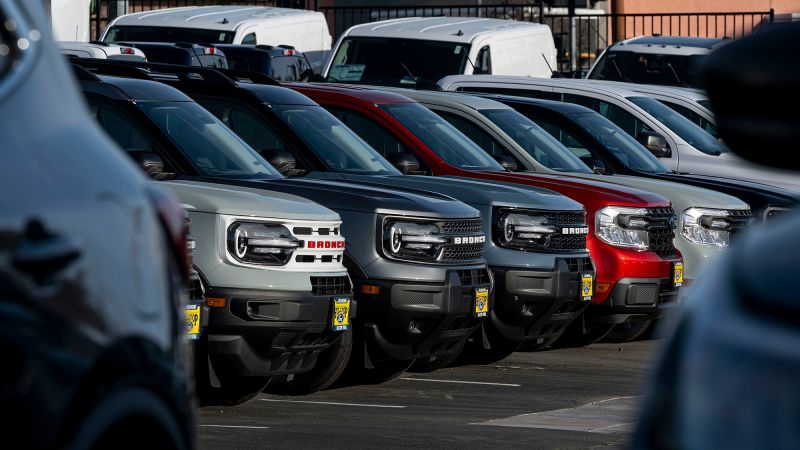CNN
—
Tariffs are costing automakers billions, but they’ve announced little in the way of car price hikes. While that’s good for car buyers, it’s not necessarily good for the American economy.
Costs have ballooned for car companies after the Trump administration imposed 25% tariffs on imported cars — nearly half the US car market — as well as an additional 25% on imported parts, which every car built here depends on.
Automakers would raise prices by double-digit percentages if they could – but there doesn’t appear to be enough demand. And given the importance of car sales to the US economy – the industry is estimated to contribute more than 4% to overall GDP — soft demand for cars could be another recession warning bell.
“We are definitely calling for an economic slowdown due to the tariffs,” said Erin McLaughlin, senior economist with the Conference Board, a research firm known for tracking consumer confidence. “This is another way we’re going to have an economic slowdown.”
And that’s an effective, if somewhat painful, check on car prices.
“We’re getting signals right now that none of (the automakers) are expecting to push the full cost of tariffs along to consumers,” said Jonathan Smoke, chief economist for Cox Automotive. “They understand that this isn’t an environment that regardless of prices moving up, that people are still going to buy.”
Weaker car demand keeping prices in check
The auto industry sold 16 million new vehicles to US buyers last year, almost half of which were imported. But there has been a sharp decline in plans to buy a vehicle, either new or used, over the course of the next six months, according to the Conference Board.
Only 10.5% of American consumers intend to buy a car, and 2.4% intend to buy a new car, the firm found. That’s down from the 13.1% who were looking to buy as recently as December and the 2.9% looking for new.
“People are nervous about inflation and tariffs, but they’re also beginning to be nervous about employment situation,” said the Conference Board’s McLaughlin, explaining the drop in car purchase intentions.

Automakers will be watching to see if demand continues to drop, and if there are any signs the US economy could fall into a recession. That’s among the worst situations for car sales, and companies may just have to absorb the higher costs.
Some top executives told customers and investors recently that the elevated costs won’t cause a spike in car prices. Instead, they expect lower profits — and lower sales — going forward this year.
“We believe …pricing is going to stay at about the same level as it is,” GM CEO Mary Barra told CNN’s Erin Burnett earlier this month.
“We now expect industry pricing related to tariffs (to increase) about 1% to 1.5% in the second half (of the year),” said Ford CFO Sherry House told reporters last week.
But even without price announcements, car prices are creeping higher.
In April, the average manufacturer’s suggested retail price (MSRP), or “sticker price,” rose above $50,000 for the fourth time in history to $50,408, according to Edmund’s.
Part of that increase could be due to the type of car being offered. Experts say tariffs could hurt the selection car buyers have to choose from as automakers stop producing less expensive, and thus less profitable, models. Also, automakers will likely stop shipping as many imported cheaper models to the United States because they can’t pass on the increased cost.
Experts predict tariffs will hurt the overall supply of new cars in the United States. And the long-ago established economic law of supply and demand means that taking millions of cars out of the supply could by itself drive up prices.
Automakers themselves are reluctant to call attention to any price increases, out of fears of chasing away customers and of angering the Trump administration. Car companies are still navigating the ever-changing auto tariff rules from the White House.

Of course, car companies have begun to hike the price for some models.
Ford told dealers on Friday it would raise the sticker price by $600 to $2,000 on the three models it imports from Mexico — the Mustang Mach-E, the Maverick pickup and the Bronco Sport SUV.
Ford stressed that the increase doesn’t apply to vehicles already in dealer inventories, and that it’s not passing along the full cost of tariffs. But it did say those tariffs were a major reason for the rise.
And even automakers that say they don’t expect a big change in car prices right now aren’t promising to hold the line longer term.
“Pricing changes in our industry at least monthly, and sometimes more frequently,” Barra told CNN’s Burnett in their interview recently. “We’re going to respond to the market.”

